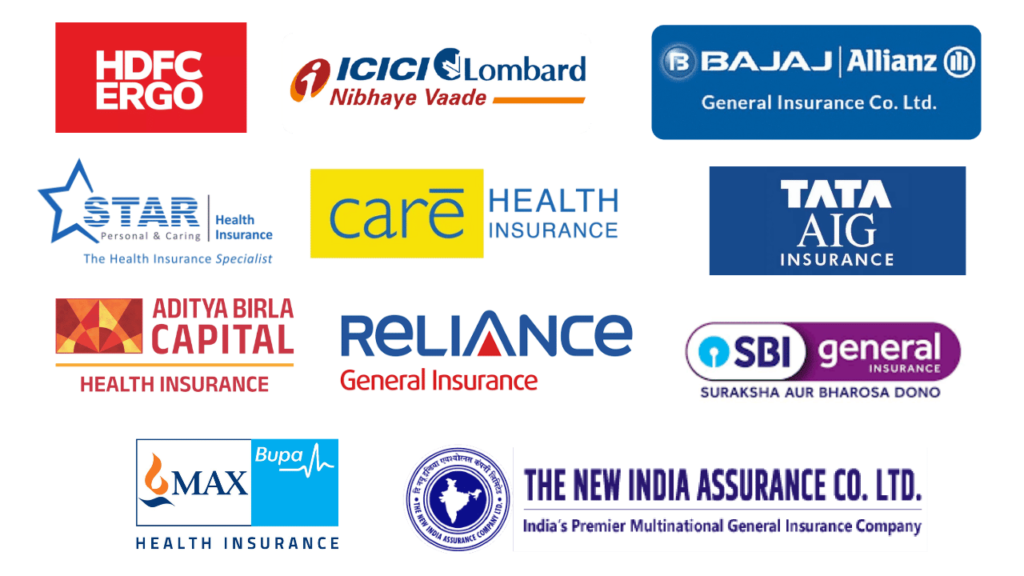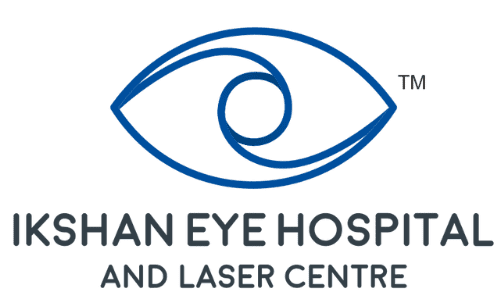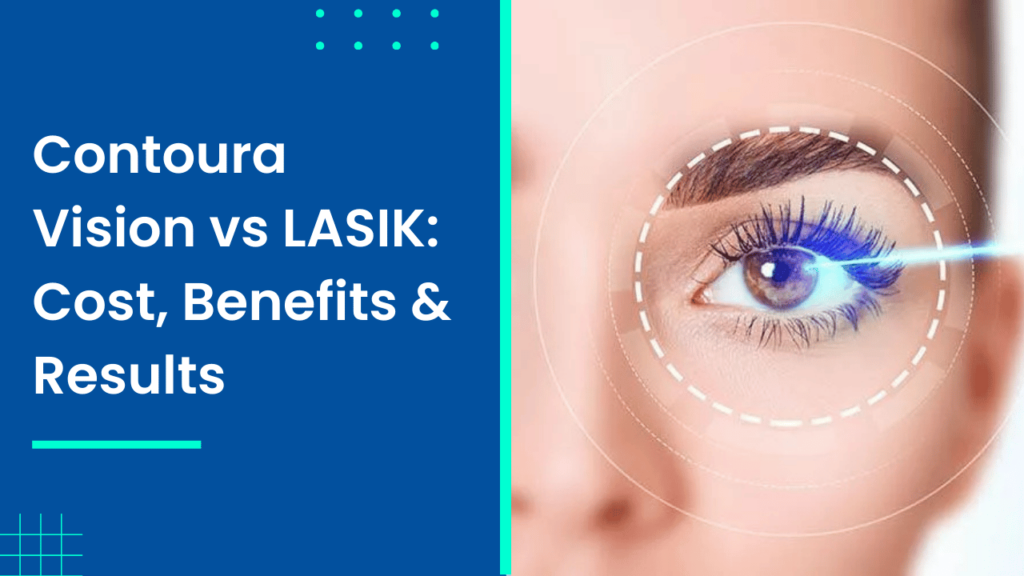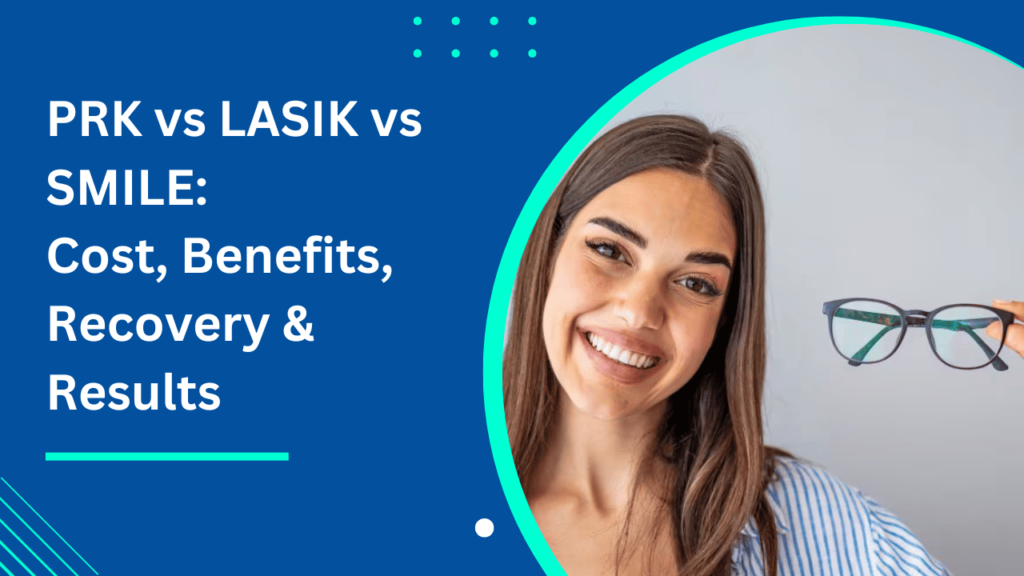Imagine waking up and seeing the world clearly without reaching for your glasses or fumbling with contact lenses. Sounds life-changing, right?
But then reality hits—LASIK surgery isn’t cheap, and you start wondering: Is LASIK covered by insurance?
The short answer? Most health insurance plans in India and globally do not cover LASIK, considering it an elective or cosmetic procedure.
However, some policies offer partial coverage, employer benefits, or special add-ons that can reduce the financial burden.
With LASIK becoming increasingly popular—over 700,000 procedures performed annually in the U.S. alone—many people are looking for ways to make it more affordable.
When I was considering LASIK, I was shocked to learn that my standard health insurance didn’t cover it.
But after digging deeper, I found ways to save, including flexible payment plans, insurance riders, and employer-sponsored vision benefits.
If you’re in the same boat, this guide will help you navigate your options, compare insurance providers, and explore alternatives to reduce your LASIK costs.
Ready to find out if your insurance can help cover your LASIK expenses?
Keep reading to discover what’s covered, which companies offer partial reimbursement, and the best ways to finance your vision correction surgery.
Understanding LASIK and Insurance Coverage

Why LASIK is Considered an Elective Procedure
If you’ve ever checked your health insurance policy for LASIK coverage, you were probably disappointed to find it missing.
That’s because LASIK is classified as an elective or cosmetic procedure, meaning it’s not considered medically necessary.
Unlike cataract surgery or treatments for severe eye conditions, LASIK is primarily done for convenience and lifestyle improvement rather than to treat a medical disorder.
Insurance companies typically only cover treatments that restore essential vision or prevent serious eye health issues.
Since glasses and contact lenses are seen as viable alternatives, LASIK doesn’t make the cut under most standard health plans.
However, some insurers offer partial coverage, employer-sponsored vision benefits, or discounts through tie-ups with eye clinics.
If you’re set on getting LASIK, don’t worry—there are still ways to make it affordable.
Many people wonder, Is LASIK covered by insurance? since it’s a popular vision correction surgery.
Let’s explore how you can navigate insurance options and financing alternatives to reduce your costs!
Does Health Insurance Cover LASIK?

Situations Where LASIK May Be Covered
While LASIK is generally considered an elective procedure, some insurance plans may offer partial or full coverage in specific cases.
The answer to Is LASIK covered by insurance? depends on your provider and specific policy.
If your vision impairment is severe and significantly affects your daily life, an insurance provider may approve LASIK as a medical necessity.
Conditions like extreme refractive errors or corneal abnormalities could qualify you for coverage.
Additionally, some employers provide vision benefits that include discounts or partial reimbursement for LASIK.
If you’re in the military or law enforcement, special health plans may cover LASIK for operational and safety reasons.
It’s always worth checking with your HR department or insurance provider to explore potential benefits.
Insurance Companies That May Offer Partial Coverage
Most standard health plans say no when asked, Is LASIK covered by insurance?, as it’s considered elective. Some insurers provide partial reimbursement, discounts, or coverage through premium plans.
Some major providers in India that may offer LASIK-related benefits include:
- ICICI Lombard
- HDFC ERGO
- Star Health Insurance
- Bajaj Allianz
- Religare (Care Health Insurance)
To find out if your policy includes LASIK benefits, check your insurance documents, visit your provider’s website, or speak directly with a customer service representative.
Some plans may also cover LASIK under vision riders or wellness programs.
Ways to Make LASIK More Affordable

Vision Insurance & LASIK Discounts
Some vision insurance providers, like VSP and EyeMed, offer discounted LASIK rates as part of their plans.
While these providers don’t typically cover LASIK surgery in full, they can significantly reduce the cost.
For example, they might offer discounts ranging from 15% to 25% on LASIK surgery or partner with trusted LASIK surgery centers.
If you already have vision insurance, it’s a good idea to check if LASIK discounts are included in your plan or if they have any affiliated clinics where you can receive discounted rates.
Flexible Spending Accounts (FSA) & Health Savings Accounts (HSA)
If your insurance plan doesn’t cover LASIK, you can still use your Flexible Spending Account (FSA) or Health Savings Account (HSA) to pay for the procedure.
These tax-advantaged accounts let you use pre-tax dollars to cover medical expenses, including LASIK surgery.
In 2025, the IRS contribution limit for FSAs is $3,050, and for HSAs, it’s up to $3,850 for individual coverage and $7,750 for families.
Using these accounts for LASIK can make the procedure more affordable, as you’re essentially paying with tax-free dollars.
Employer Benefits & LASIK Financing Options
If you’re asking, Is LASIK covered by insurance?, check if your employer offers vision benefits or discounts.
Some employers offer LASIK reimbursement programs or discounts as part of their employee wellness benefits.
These programs may reimburse you for a portion of your LASIK costs if you’ve been with the company for a certain amount of time. Another option is LASIK financing, which many surgery centers offer.
EMI plans, medical loans, and 0% interest financing allow you to spread out the cost of LASIK over a period of time, making it easier to fit into your budget.
Be sure to ask your LASIK provider about available payment options to determine which one works best for you.
Which Insurance Companies Cover LASIK Eye Surgery in India?

Insurance Providers That May Offer Partial Coverage
Here’s a quick overview of some insurance companies in India that may offer partial coverage or discounts on LASIK eye surgery, depending on your policy and medical need:
- HDFC Ergo: Offers coverage for LASIK surgery under specific circumstances where it is medically necessary, such as severe refractive errors.
- ICICI Lombard: Some plans may include LASIK coverage if the surgery is deemed medically required, particularly for individuals with high prescription needs.
- Bajaj Allianz: Known to offer discounts on LASIK surgery through vision correction plans, particularly for customers with high-risk eye conditions.
- Star Health Insurance: Provides partial coverage for LASIK in cases of refractive errors, especially for policyholders with visual impairments affecting daily life.
- Max Bupa (Niva Bupa): Offers certain plans that may cover LASIK surgery for individuals experiencing major vision issues.
- Tata AIG: Select plans may include LASIK surgery as part of comprehensive vision care benefits, especially when prescribed by a doctor.
- Care Health Insurance: Some Care Health plans offer discounts or partial coverage on LASIK under medical necessity clauses.
Make sure to consult with your insurer for specific coverage details.
Employer-Provided Health Insurance & LASIK
Many employers offer health insurance plans that may cover or reimburse LASIK surgery, especially for employees experiencing significant vision issues. Here’s a quick look at some providers offering such benefits through employer-sponsored plans:
- Reliance General Insurance: Some employer health policies include LASIK coverage, often as part of broader vision care benefits.
- Aditya Birla Health Insurance: Provides policies that may offer LASIK coverage, particularly when there’s a medical need due to refractive errors or vision impairments.
- New India Assurance: Certain group insurance plans might cover LASIK surgery for employees experiencing significant vision problems.
- Oriental Insurance: Known for offering vision care services through employer-provided insurance, including LASIK surgery coverage for qualifying conditions.
- SBI Health Insurance: Offers potential LASIK benefits through corporate health policies, covering surgery if deemed necessary for correcting refractive errors.
Military personnel and first responders might get special benefits when asking, Is LASIK covered by insurance?
To understand your eligibility, check your employer’s benefits or consult the HR department for more details about LASIK surgery coverage.
How to Check if Your Insurance Covers LASIK

Steps to Verify Coverage
Some insurers may provide partial coverage, so always verify, Is LASIK covered by insurance? with your provider. To find out if LASIK surgery is covered by your insurance, follow these steps:
- Contact Your Insurance Provider: Call the customer service number on the back of your insurance card to inquire about LASIK coverage. Ask specifically about your policy’s terms regarding eye surgery.
- Review Your Policy Documents: Go through your health insurance policy or benefits handbook to see if there is any mention of vision correction surgeries like LASIK.
- Ask About Specific Criteria: Ensure to clarify whether LASIK is only covered in the case of medical necessity or if it’s available as part of a broader vision care benefit.
- Request Written Confirmation: It’s always a good idea to get confirmation in writing (email or letter) for peace of mind about your LASIK coverage.
Key Questions to Ask:
- Does my plan cover LASIK surgery?
- Is the coverage for medical necessity only or also for cosmetic purposes?
- What are the specific conditions or requirements for LASIK coverage?
- Are there any coverage limits or exclusions?
Alternative Eye Surgeries That Insurance May Cover
In case LASIK is not covered or if you’re not eligible, here are some alternative vision correction surgeries that may be covered by your insurance:
- PRK (Photorefractive Keratectomy): PRK is another laser vision correction procedure, similar to LASIK, and might be covered by some insurance plans if medically necessary.
- ICL (Implantable Collamer Lens): For patients with thin corneas or high prescriptions that make them unsuitable for LASIK, ICL is a viable alternative that might be covered.
- Cataract Surgery: Cataract surgery, often needed for older patients, is generally covered by most insurance policies. If your vision issues are related to cataracts, it could be easier to get insurance coverage.
Comparing Costs and Eligibility:
- LASIK tends to be more expensive than PRK and is less likely to be covered unless medically necessary.
- ICL and cataract surgeries may be covered under certain plans but also come with additional out-of-pocket costs.
Make sure to inquire about the specific eligibility and cost structure for these alternatives with your insurance provider.
Is LASIK Worth It Without Insurance?

Cost vs. Long-Term Savings
When considering LASIK without insurance, the upfront cost can seem daunting, but it’s important to look at the long-term savings.
Cost of LASIK: The typical cost of LASIK surgery without insurance can range from ₹40,000 to ₹1,50,000 per eye, depending on the clinic, technology used, and surgeon’s expertise. However, while the initial investment is substantial, LASIK can save you thousands over time.
Long-Term Savings:
- Glasses & Contact Lenses: Over the years, the cost of purchasing new glasses, prescription lenses, contact lenses, cleaning solutions, and eye exams can add up to a significant amount. For example, glasses can cost anywhere from ₹5,000 to ₹20,000 every few years, while contact lenses might cost around ₹10,000 per year.
- Annual Expenses: With LASIK, you’ll no longer need to buy glasses or contacts, saving you up to ₹20,000 annually in the long run.
Real-Life Cost Comparisons: Imagine spending ₹1,00,000 on LASIK upfront but saving ₹20,000 each year thereafter.
In just five years, you could have saved ₹1,00,000 — essentially breaking even with the cost of the surgery. The more years you go without needing corrective eyewear, the greater your savings.
So, while LASIK may feel like a high initial expense, it can ultimately pay off by eliminating the ongoing costs of glasses and contacts.
Patient Testimonials & Success Stories
Many patients who have paid for LASIK surgery out-of-pocket have found the investment well worth it, with life-changing results.
Story 1: Rita’s Experience: “I had been wearing glasses since I was 12, and the yearly expense for contact lenses and glasses was becoming a burden. I decided to pay for LASIK out of my own pocket, and within a few days of the procedure, my vision was clearer than ever! It’s been five years now, and I haven’t had to buy a new pair of glasses. Best decision I ever made.”
Story 2: Raj’s Journey: “I was initially hesitant about paying for LASIK myself, but after crunching the numbers, I realized how much I was spending on glasses and contacts annually. LASIK has completely changed my life. I can wake up and see clearly without worrying about glasses or contacts.”
These stories highlight the significant quality of life improvements and cost savings patients experience after LASIK.
Although it’s an upfront expense, many feel that the benefits of clear vision and the money saved on eyewear make LASIK a wise investment in the long run.
Finding the Right LASIK Provider

Choosing a Reputable LASIK Surgeon
Choosing the right LASIK surgeon is crucial to achieving optimal results. You don’t want to take any chances with your vision, so it’s important to do thorough research before making a decision.
Key Factors to Consider:
- Experience: Look for a surgeon with extensive experience in LASIK surgery. Surgeons who have performed thousands of successful LASIK procedures are likely to provide the best results.
- Technology: Ensure the clinic uses the latest LASIK technology, such as femtosecond lasers and advanced diagnostic equipment. This ensures precision and safety during your procedure.
- Patient Reviews: Reviews and testimonials from former patients can offer valuable insight into the surgeon’s skill and patient care. Be sure to read both positive and negative feedback to gauge the overall experience.
Why Not to Compromise on Quality for Lower Costs: While cost is a consideration, don’t let it be the deciding factor when choosing a LASIK provider.
Opting for a surgeon with the lowest price could result in subpar care or outdated technology, which could affect your results and recovery.
Always prioritize experience, technology, and patient outcomes over price.
Special Mention – Ikshan Eye Hospital
If you’re looking for top-tier LASIK surgery, Ikshan Eye Hospital in Nagpur is one of the best choices.
Known for its advanced technology and skilled medical team, Ikshan Eye Hospital is committed to providing safe, precise, and effective LASIK procedures.
- Advanced Technology: The hospital uses cutting-edge equipment to ensure that your LASIK procedure is as safe and precise as possible. From the diagnostic stage to the surgery itself, Ikshan Eye Hospital employs the latest technology for the best results.
- Dr. Swapnil Rathod: Dr. Rathod is a highly experienced LASIK specialist who has successfully performed numerous LASIK surgeries with exceptional outcomes. His expertise and commitment to patient care make him a leading LASIK surgeon in India.
At Ikshan Eye Hospital, you can be assured that your vision is in expert hands.
Whether you’re seeking LASIK or another eye treatment, the hospital’s reputation for quality and patient satisfaction makes it a trusted choice.
Conclusion
Navigating LASIK surgery coverage can be tricky, as most standard health insurance plans do not cover it due to its classification as an elective procedure.
However, there are ways to make LASIK more affordable, such as through vision insurance discounts, Flexible Spending Accounts (FSAs), Health Savings Accounts (HSAs), and employer-provided benefits.
In addition, many financing options like EMI plans or medical loans can make the procedure more accessible without breaking the bank.
It’s important to fully explore your insurance coverage and financing options to ensure that LASIK fits within your budget.
And don’t forget the value of long-term savings, as LASIK can significantly reduce your dependence on glasses and contact lenses.
If you’re considering LASIK, book a consultation at Ikshan Eye Hospital.
Our experienced team, led by Dr. Swapnil Rathod, will guide you through your options and help you make an informed decision about LASIK.
Let’s discuss how we can improve your vision today!



